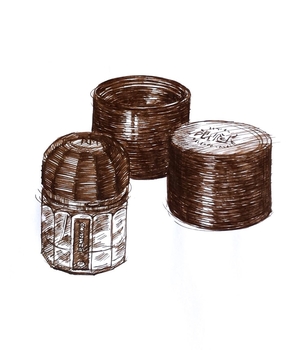Tagged With ‘Myrurgia’
Ramón Monegal
Dry Wood
2 March, 2015
 The world of perfume is full of great stories – some of them true, others completely bogus or quietly tweaked by fiendish marketeers. The story of Ramón Monegal is one of the better ones, and it’s also more interesting than most. The nice thing is that it has a happy ending too.
The world of perfume is full of great stories – some of them true, others completely bogus or quietly tweaked by fiendish marketeers. The story of Ramón Monegal is one of the better ones, and it’s also more interesting than most. The nice thing is that it has a happy ending too.
Monegal’s great-grandfather founded Myrurgia, which during the twentieth century became the best-known perfume brand in Spain. Ramón joined the business in 1972, training at Firmenich in Geneva and in Paris with the famous perfumer Pierre Bourdon (creator of Davidoff’s Cool Water and Serge Lutens’ Feminité du Bois).
Ramón created his first perfume for Myrurgia in 1979, but he also went on to develop scents for other brands, from Adolfo Dominguez to Inès de la Fressange. He eventually became vice-president of the family company, but in 2000 it was sold to Puig, the giant Barcelona-based fragrance-and-fashion group, which owns everything from Jean-Paul Gaultier to Penhaligon’s and L’Artisan Parfumeur.
The transition from owner to employee is surely always a difficult one, and though Monegal was appointed development director for the group’s fragrance brands, it must have hurt when, in 2007, Puig closed Myrurgia down. Monegal left the same year, but in 2010 he launched his own brand, and in 2014 he made a remarkable comeback by releasing fourteen new fragrances in one go. All the ones I’ve smelled so far are interesting and unusual, and Dry Wood is no exception.
It’s been described as a ‘sharp sandalwood’, but it also reminds me of a top-quality men’s aftershave from the 1970s, with hints of cedar and pine as well as sandalwood; if you remember the old ‘things happen after a Badedas bath’ adverts you’ll know the kind of thing I mean. It has great staying-power, and after a while smells woodier than it does to start with, though still with a touch of pine and turpentine.
Like all the perfumes in the range, Dry Wood comes in attractively luxurious packaging, also designed by Monegal. The chunky twelve-sided ‘inkwell’ bottles, with their flip-up black domed caps, are apparently inspired by his love of literature, and are contained in black Bakelite tubes, which screw closed in a very satisfying way. Perhaps it’s not surprising that these perfumes are expensive, at £130 for just 50ml (or $160 in the States).
The only problem at the moment is buying them: currently they’re only available from Harrods in the UK or Nieman Marcus in the US, which means they’re not going to get as wide an exposure as I think they deserve. Still, they’re well worth tracking down if you have the dedication (and the cash).